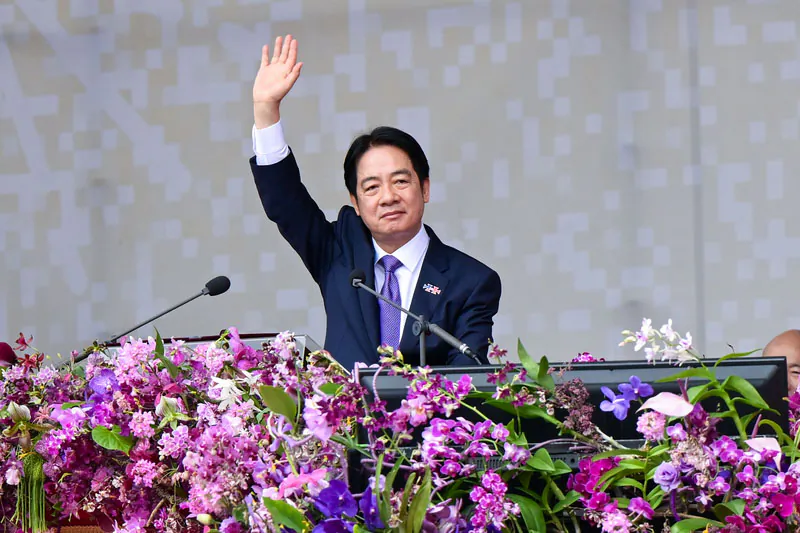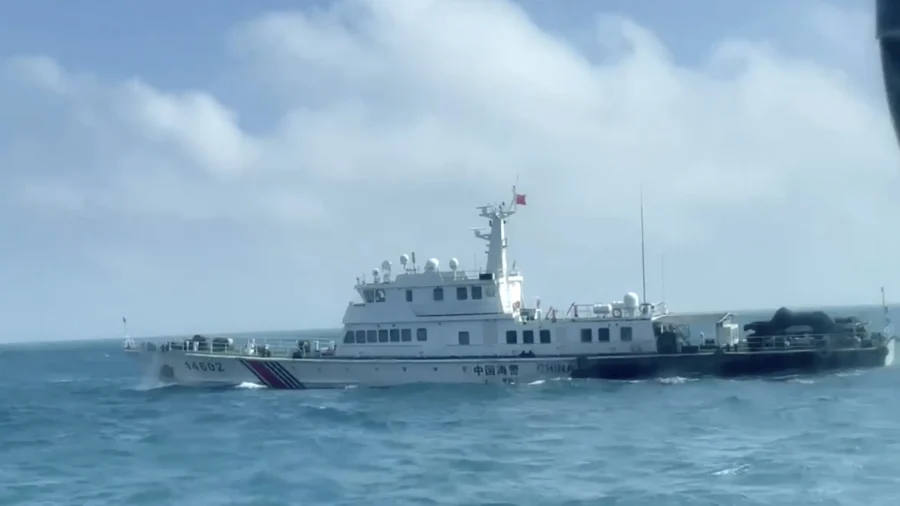China’s military launched a new round of war games around Taiwan on Oct. 14, deploying planes and ships around the self-ruled island in what Bejing described as a “stern warning” to “separatist” forces.
Taiwan’s defense ministry said it will deploy “appropriate forces” to safeguard its sovereignty.
The Chinese Communist Party’s (CCP’s) military launched its “Joint Sword-2024B” drills just four days after Taiwanese President Lai Ching-te said in his national address that Beijing has no right to represent Taiwan.
It is the fourth such drill in two years.
The CCP’s Eastern Theater Command stated that it was conducting the drills in the Taiwan Strait and “areas to the north, south, and east” of Taiwan. It did not specify how long the drills would last.
The drills have involved troops from the Chinese army, navy, and air force. The command said that Chinese ships and aircraft were approaching Taiwan in “close proximity from different directions,” with a focus on “sea-air combat-readiness patrols.”
It said the Chinese vessels and aircraft were also focused on blockading key ports and areas, and assaulting maritime and ground targets, as well as on “joint seizure of comprehensive superiority” as part of the drills.
The Taiwanese Ministry of National Defense has condemned the Chinese military’s actions as “irrational and provocative.”
The United States has expressed “serious concern” over the CCP’s military drills. The State Department said on Oct. 13 that Beijing’s actions could “risk escalation” and urged the CCP to “act with restraint.”
Captain Li Xi, spokesman for China’s Eastern Theater Command, said the military exercises were intended to serve as “a stern warning” against what the CCP described as “separatist acts of Taiwan independence forces.”
Taiwan’s military spotted 25 Chinese aircraft, seven naval vessels, and four official ships around the island on Oct. 14, with 16 of the aircraft crossing the median line and entering Taiwan’s air defense identification zone, according to a Defense Ministry post on social media platform X.
Taiwan responded by scrambling aircraft, vessels, and coastal missile systems to monitor the CCP military’s activities, it said.
Taiwan’s Mainland Affairs Council strongly condemned the military drills, saying the CCP’s actions “seriously undermine” regional peace and stability and the status quo in the Taiwan Strait.
Taiwan will “never retreat or succumb” to the recent political, military, economic, and other threats posed by the CCP, which has vowed to claim the self-ruled island as part of its territory, it stated.
“Our military has fully grasped the dynamics of the Chinese Communist Party, strengthened combat readiness, and is fully equipped to protect the country and the people,” the council said in a statement.
Taiwan Vows to Resist ‘Annexation’
The drills came just days after Lai delivered a speech on Oct. 10 marking the island’s National Day, in which he pledged to uphold his commitment “to resist annexation or encroachment” on Taiwan’s sovereignty.
Lai, who took office in May, reiterated Taiwan’s position of maintaining the current status quo of peace and stability in the Taiwan Strait, while seeking to hold equal and dignified talks with the CCP regime.

“On this land, democracy and freedom are growing and thriving. The People’s Republic of China has no right to represent Taiwan,” he said. Lai emphasized that the two sides are not subordinate to each other.
U.S. Secretary of State Antony Blinken also warned the CCP against engaging in any provocative actions toward Taiwan following Lai’s national address.
“I can tell you that with regard to the so-called 10/10 speech, which is a regular exercise, China should not use it in any fashion as a pretext for provocative actions,” Blinken told reporters while in Laos on Oct. 11.
The CCP’s antagonism toward Taiwan and its liberal democratic system has intensified since Taiwan’s Democratic Progressive Party (DPP) was elected in 2016, when Lai’s predecessor, Tsai Ing-wen, began the first of her two terms in office. Lai, who is currently the DPP chairman, was vice president during the Tsai administration, which pursued policies favoring Taiwan’s sovereignty, angering Beijing.
The regime considers both Tsai and Lai to be “separatists,” a phrase that Beijing frequently uses for any Taiwanese who advocate for the island’s sovereignty.
Frank Fang contributed to this report.
From The Epoch Times

